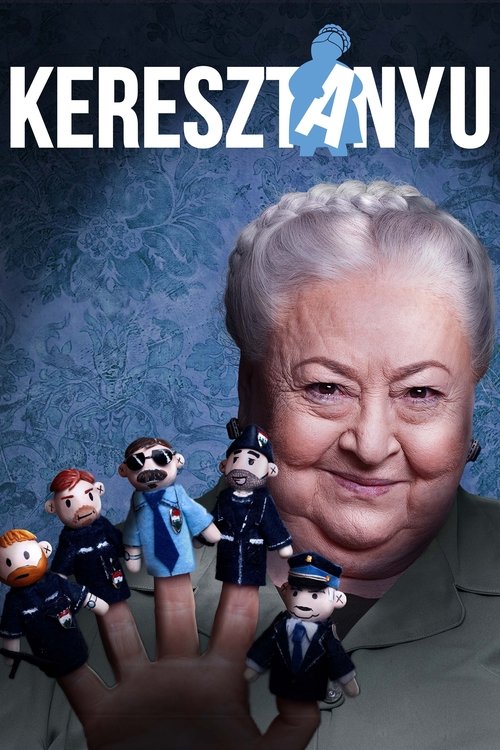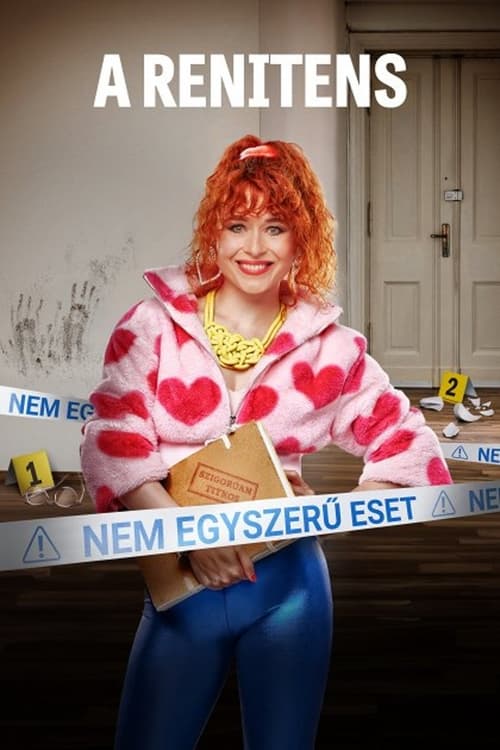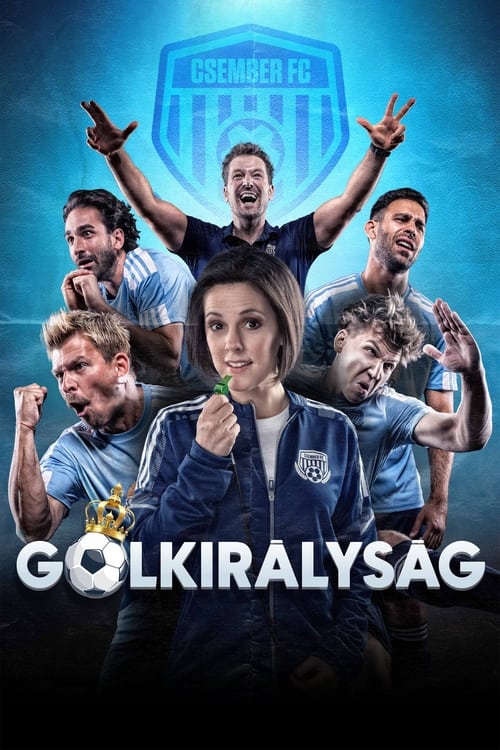
Ask Your Own Question
What is the plot?
In the opening scene of "A Nagy Fehér Főnök," we are introduced to the main character, András, a middle-aged man who works as a middle manager in a large corporation. He is shown struggling with the pressures of his job, feeling overshadowed by his superiors and disconnected from his family. The scene sets a tone of frustration and longing for recognition. András is seen at a corporate meeting where his ideas are dismissed, leading to a sense of defeat.
The narrative shifts to András's home life, where he interacts with his wife, Éva, and their teenage daughter, Lili. Éva is supportive but increasingly worried about András's mental state, while Lili is preoccupied with her own teenage issues. This domestic scene highlights the emotional distance growing between András and his family, as he often retreats into his work to escape his feelings of inadequacy.
As the story progresses, András receives an unexpected promotion to a higher position, which comes with the responsibility of managing a new project. This news initially brings him joy, but it quickly turns to anxiety as he realizes the expectations that come with the role. He is tasked with leading a team that includes his former rival, Gábor, who is resentful of András's promotion. The tension between them is palpable, setting the stage for future conflicts.
In a pivotal scene, András attends a team-building retreat with his new team. During a series of exercises, he struggles to assert his authority, leading to a humiliating moment when Gábor undermines him in front of the group. This incident deepens András's insecurities and fuels his desire to prove himself. He begins to obsess over the project, often working late and neglecting his family.
Back at home, Éva confronts András about his increasing absence and emotional withdrawal. They have a heated argument where Éva expresses her frustration over András's priorities. This confrontation forces András to reflect on his choices, but he ultimately chooses to prioritize work over family, believing that success will bring them closer.
As the project progresses, András faces numerous challenges, including budget cuts and team conflicts. He becomes increasingly authoritarian in his management style, alienating his team members. Gábor takes advantage of this situation, rallying support from other team members to undermine András's leadership. The internal strife culminates in a dramatic confrontation during a team meeting, where Gábor openly challenges András's decisions, leading to a heated exchange that leaves the team divided.
In a moment of desperation, András decides to take a risky approach to salvage the project. He proposes a controversial strategy that goes against the company's initial vision. This decision is met with mixed reactions from his team, but András is determined to prove his worth. He feels a surge of confidence, believing that this bold move could be his redemption.
As the project nears its deadline, András's mental state deteriorates. He begins to experience paranoia, convinced that Gábor is plotting against him. In a tense scene, András confronts Gábor in a private meeting, accusing him of sabotage. Gábor, maintaining his composure, denies the allegations, but the confrontation leaves András feeling isolated and betrayed.
The climax of the season occurs during a critical presentation to the company's executives. András, fueled by anxiety and desperation, delivers a passionate pitch for his controversial strategy. However, during the presentation, he falters, revealing his inner turmoil. The executives are unimpressed, and Gábor seizes the opportunity to undermine András further, presenting an alternative plan that gains their favor.
In the aftermath of the presentation, András faces the consequences of his decisions. He is called into a meeting with upper management, where he is informed that his position is at risk due to the project's failure. This moment is a crushing blow for András, who realizes that his ambition has cost him not only his job but also his family's trust and support.
The season concludes with András returning home, visibly shaken. He attempts to reconnect with Éva and Lili, but the emotional distance remains. The final scene leaves viewers with a sense of uncertainty as András stands alone in his living room, contemplating the choices that have led him to this point, setting the stage for potential redemption or further downfall in the future.
What is the ending?
In the ending of "A Nagy Fehér Főnök," the main characters face the consequences of their actions throughout the season. The tension culminates in a dramatic confrontation that leads to significant changes in their relationships and personal growth. The season concludes with a sense of resolution for some characters, while others are left with unresolved issues, setting the stage for potential future developments.
As the final episode unfolds, the scene opens in the bustling office of the company, where the atmosphere is thick with anticipation. The camera pans across the faces of the employees, revealing a mix of anxiety and determination. The protagonist, a young and ambitious employee named Anna, stands at the center of the room, her heart racing as she prepares to present her groundbreaking project to the board. She has faced numerous challenges throughout the season, including skepticism from her colleagues and personal doubts about her abilities.
As Anna begins her presentation, the scene shifts to her rival, Gábor, who sits in the back, arms crossed, a smirk on his face. He has been a constant thorn in Anna's side, undermining her efforts at every turn. However, as Anna passionately articulates her vision, the camera captures a flicker of respect in Gábor's eyes, hinting at a potential shift in their dynamic.
The scene transitions to the boardroom, where the company's CEO, the titular "Nagy Fehér Főnök," listens intently. His expression is inscrutable, but the tension in the room is palpable. Anna's presentation is met with a mix of applause and skepticism, leading to a heated debate among the board members. The stakes are high, and Anna's future hangs in the balance.
In a pivotal moment, the CEO interrupts the discussion, calling for a vote on Anna's project. The camera zooms in on her face, capturing her anxiety and hope. As the votes are counted, the atmosphere shifts from tense to electric. The final vote is announced, and Anna's project is approved, leading to a wave of relief and celebration among her supporters.
However, the victory is bittersweet. Gábor approaches Anna, and instead of the expected confrontation, he offers a begrudging compliment. This moment signifies a turning point in their relationship, suggesting that competition can lead to mutual respect.
The final scenes depict the aftermath of Anna's success. She is seen in her new office, a symbol of her hard-earned achievements. Yet, as she gazes out the window, a look of contemplation crosses her face, hinting at the challenges that still lie ahead. Meanwhile, Gábor is shown reflecting on his own ambitions, suggesting that he may reconsider his approach to success.
The season concludes with a montage of the characters moving forward in their lives, each facing their own battles but with a newfound sense of purpose. Anna's journey from doubt to confidence serves as a central theme, while Gábor's transformation hints at the complexities of ambition and rivalry.
In summary, the ending of "A Nagy Fehér Főnök" encapsulates the growth of its characters, the shifting dynamics of their relationships, and the ongoing challenges they will face, leaving viewers with a sense of hope and anticipation for what lies ahead.
Is there a post-credit scene?
In "A Nagy Fehér Főnök," season 1, there is indeed a post-credit scene that adds an intriguing layer to the narrative.
As the credits roll, the screen fades to black before transitioning to a dimly lit office space. The camera slowly pans across the room, revealing a large desk cluttered with papers and a single flickering lamp. The atmosphere is tense, filled with an air of secrecy.
Suddenly, the door creaks open, and a shadowy figure enters. The figure is partially obscured, but the outline suggests a familiar silhouette. As they step into the light, it is revealed to be one of the main characters, who had been absent from the final episode's climax. Their expression is a mix of determination and anxiety, hinting at unresolved issues from the season.
They approach the desk and pick up a phone, dialing a number with urgency. The camera zooms in on their face, capturing the intensity of their emotions as they wait for the call to connect. When the other end picks up, the character leans in closer, whispering a single phrase: "It's time to make our move."
The scene cuts to black, leaving viewers with a sense of anticipation and curiosity about what this character's next steps will be, setting the stage for potential conflicts and alliances in future seasons. The post-credit scene effectively teases deeper storylines and character arcs, ensuring that the audience is left eager for more.
What motivates the main character, András, in his quest for success?
András, the protagonist, is driven by a deep-seated desire to prove himself in the competitive world of business. His background of humble beginnings fuels his ambition, as he seeks not only financial success but also validation from his peers and family. Throughout the season, his internal struggle between ethical considerations and the ruthless nature of corporate life creates a compelling tension.
How does the relationship between András and his mentor, Zoltán, evolve throughout the season?
Initially, András views Zoltán as a guiding figure, someone who embodies the success he aspires to achieve. However, as the season progresses, András begins to see Zoltán's darker side, including manipulative tactics and moral compromises. This realization leads to a rift between them, as András grapples with the choice of following Zoltán's path or forging his own, ultimately testing their mentor-mentee bond.
What role does the character of Eszter play in András's journey?
Eszter serves as both a love interest and a moral compass for András. Her unwavering principles and support challenge him to reconsider his choices and the impact of his ambition on personal relationships. As András becomes more entangled in the cutthroat business environment, Eszter's presence highlights the emotional cost of his decisions, leading to pivotal moments of self-reflection for him.
What are the key conflicts that arise between András and his rival, László?
The rivalry between András and László is marked by intense competition and personal animosity. László, who embodies the cutthroat nature of the corporate world, often undermines András through sabotage and manipulation. Their confrontations escalate, revealing not only their differing approaches to business but also personal vendettas that stem from past grievances, culminating in a dramatic showdown that tests András's resolve.
How does the corporate environment influence the characters' decisions and relationships?
The corporate environment in 'A Nagy Fehér Főnök' is depicted as a high-stakes arena where ambition often trumps morality. Characters are frequently faced with ethical dilemmas that force them to choose between personal integrity and professional advancement. This pressure creates a toxic atmosphere that strains relationships, as alliances shift and betrayals occur, ultimately shaping the characters' arcs and their interactions with one another.
Is this family friendly?
"A Nagy Fehér Főnök" is a comedy series that explores themes of workplace dynamics, family relationships, and personal ambition. While it contains humorous elements, there are aspects that may not be suitable for all audiences, particularly children or sensitive viewers.
-
Mature Themes: The show delves into adult themes such as corporate politics, personal ambition, and the complexities of family relationships, which may be difficult for younger viewers to fully understand.
-
Language: There are instances of strong language and adult humor that may not be appropriate for children.
-
Conflict and Tension: The series features interpersonal conflicts, including arguments and emotional confrontations, which could be upsetting for sensitive viewers.
-
Workplace Situations: Some scenes depict stressful workplace scenarios that may resonate with adult viewers but could be confusing or distressing for younger audiences.
-
Romantic Subplots: There are romantic elements that include adult relationships and situations that may not be suitable for children.
Overall, while the show is comedic in nature, its themes and content may warrant parental discretion for younger viewers.


































